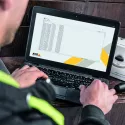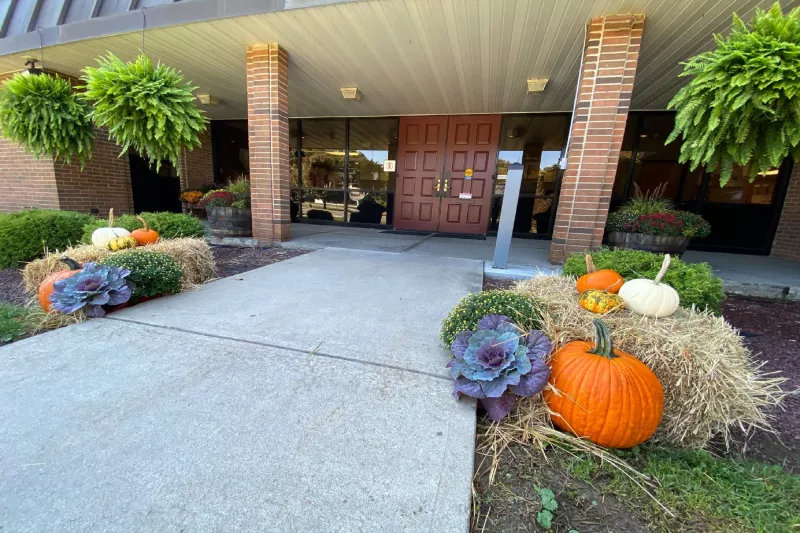
Building trust through transparency.
New Windsor Police Department employs Axis body worn cameras to document patrol officer interactions and detective interviews on the street.
Community businesses back body camera investment
When Police Chief Robert Doss first proposed that the New Windsor Police Department (NWPD) invest in body worn cameras, he felt the transparency afforded by the technology would provide a huge step forward in officer safety and police-community relations. But for a small town like New Windsor, New York, many of the solutions on the market were far too expensive to consider.
“Some of the quotes coming in were as high as $250,000 for a five-year contract,” says Patrick Mangan, Deputy IT Officer for the town of New Windsor. “Plus, they wanted us to store the video in the cloud. That was way beyond our budget.”
The Axis body worn cameras not only verify how our officers are performing in the field, they also help us quickly resolve any civilian complaints. That kind of transparency not only builds public trust and confidence in the work we do, but also improves officer safety.
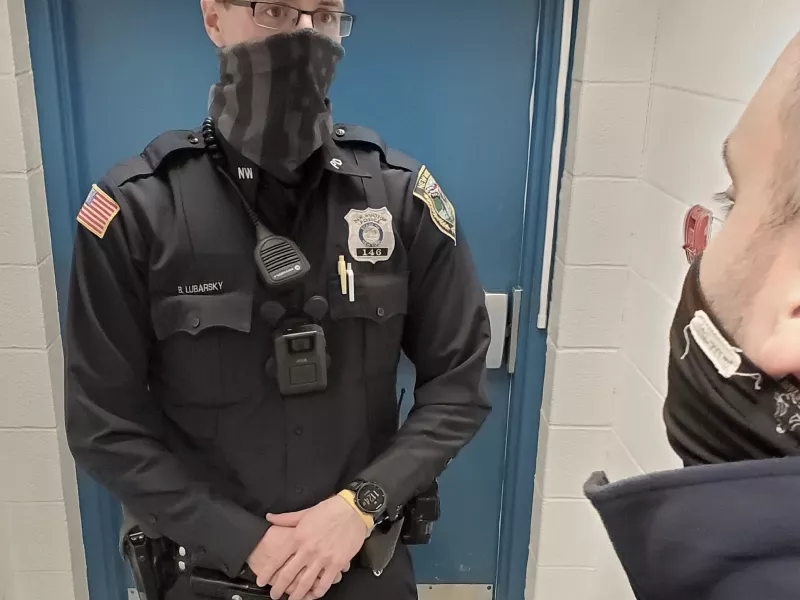
Then, Axis Communications introduced to the market a new wearable camera solution. Since the town was already securing many town-owned properties with Axis cameras, Mangan recommended that the NWPD check out this new offering.
“After great results we got during the testing phase, we knew we had found our solution,” states Chief Doss. “The cameras are well-built, and the video quality is outstanding. Plus, the Axis solution lets us store the video on our existing security-compliant servers instead of paying for expensive cloud storage.”
Community buy-in was also important to Chief Doss. His outreach efforts helped secure community support for the project right from the start. In fact, most of the technology’s $37,000 price tag was funded by generous donations from local businesses which took the burden off taxpayers.
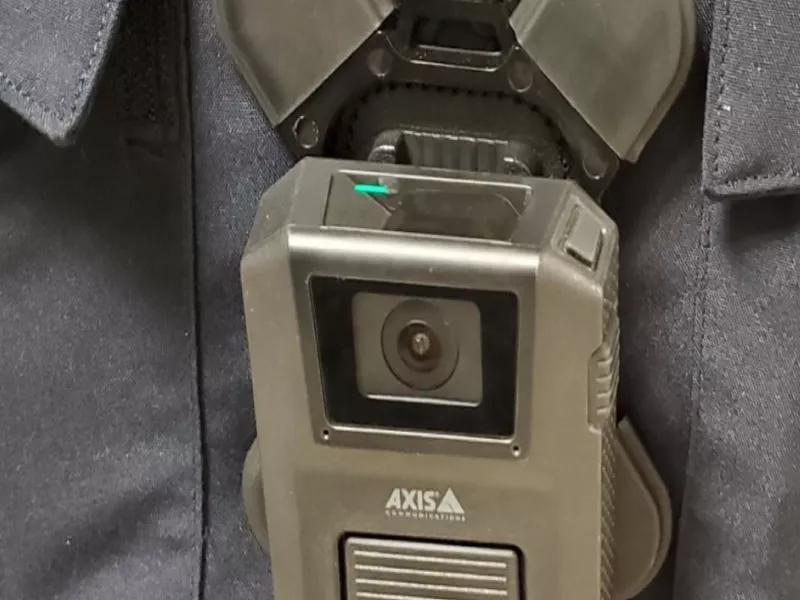
Hitting all the marks
The Axis solution that NWPD purchased included 50 body cameras with rugged Klick Fast magnetic mounting clips, seven eight-bay docking stations to automatically offload the video and recharge the body cameras, and two system controllers to transfer the video to AXIS Camera Station Pro, a video management software system. The system controller configures and manages the body cameras and user profiles as well as monitors system health.
The AXIS Camera Station Pro software simplifies updating the cameras with the latest software and firmware and makes storing, viewing, and exporting video evidence a breeze. In addition, the software provides NWPD with customizable incident reports, a bookmarking function for easy video searches, and video redaction to mask objects and innocent bystanders in the video.
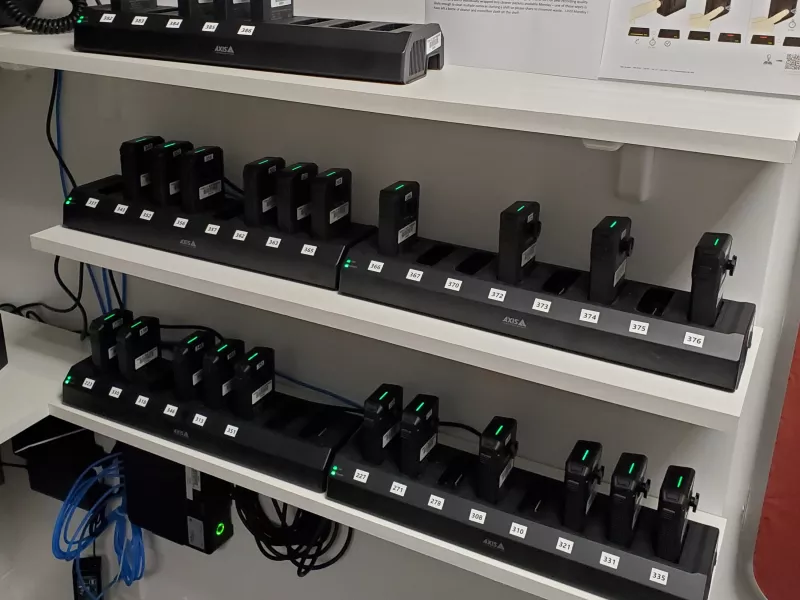
“The Axis solution met all our criteria,” says Mangan. “The one-tap activation couldn’t be any easier. We also like the extra coverage we get from the programmable pre-buffer that records 30 to 90 seconds of video in case the officer momentarily forgets to turn on their camera on.”
Mangan notes that in addition to sharp images, the sound quality of the cameras is crystal clear. “That’s because the cameras are built with dual microphones for noise suppression,” explains Mangan.
Chief Doss reports that his officers like that the cameras are light weight and are available in matte black. “They blend right in with the uniforms and don’t draw attention,” says the Chief.
Officers also appreciate that the whole process of recharging the cameras and offloading and storing the video is automatic. They just put the camera in the docking station at the end of their shift and the system does it all for them.
With so many civilians recording police interactions on their cellphones, officers also like having their own body cameras documenting a situation as it unfolds because it can be used to counter complaints and false claims of misconduct.
From an IT perspective, Mangan appreciates that the Axis body cameras use H.264 streaming for their video. “Almost all the other body camera systems we looked at used .mp4 which takes up a lot more storage.”
Not just for patrolling the streets
To protect video integrity, NWPD sets user permissions and views activity logs within AXIS Camera Station Pro, ensuring that only authorized personnel can view video evidence and make changes in the system. Patrol officers who share desktops in the bullpen, use unique credentials logging into the Axis video management software to view their own body camera video. Sergeants are authorized to view footage from all patrol officer cameras. Detectives also have access to any patrol officer video relevant to an investigation. Reviewing footage from multiple officers on the scene helps detectives compare different perspectives of an event.
Typically, NWPD detectives bring individuals into the police station to be interviewed and recorded, but occasionally there is a need to interview someone on the scene instead. In those instances - in addition to taking notes - they use their body camera to record the exchange.
From time to time, administrators might also use the body worn cameras to document interactions with the public.
“The body camera video has also been a real asset in officer training,” says Chief Doss. “We’ve found that showing officers the right way to do something is far more effective than just talking about it.”
Chief Doss shared some of that video as a springboard for discussion when he participated in the New York State mandated police reform collaborative panel. “Because we were using the body cameras prior to the panel’s implementation we were able to use it to verify to panel members how officers were actually performing in the field,” says the Chief.
Features that enhance safety and transparency
One safety feature that stands out for the department is the camera’s ability to turn on automatically if an officer falls or is pushed to the ground. Chief Doss is also exploring the possibility of adding a holster sensor which can automatically initiate a recording from the Axis body worn camera when an officer removes a holstered device.
“The Axis body cameras have proven a smart investment for our department and our community,” shares Chief Doss. “They give us the transparency we need to foster public trust and quickly resolve civilian complaints. Furthermore, when people know our officers are recording the interaction it often helps to de-escalate the situation. And that makes our streets a safer place for everyone.”
Products & solutions

















